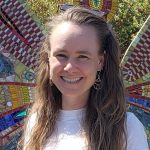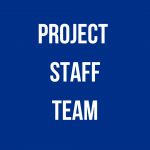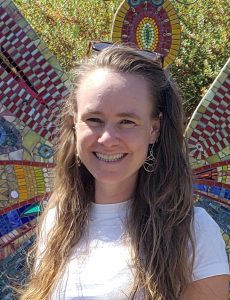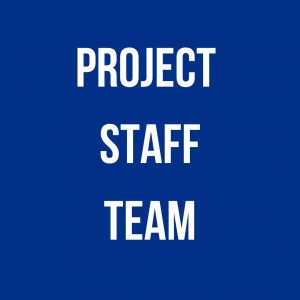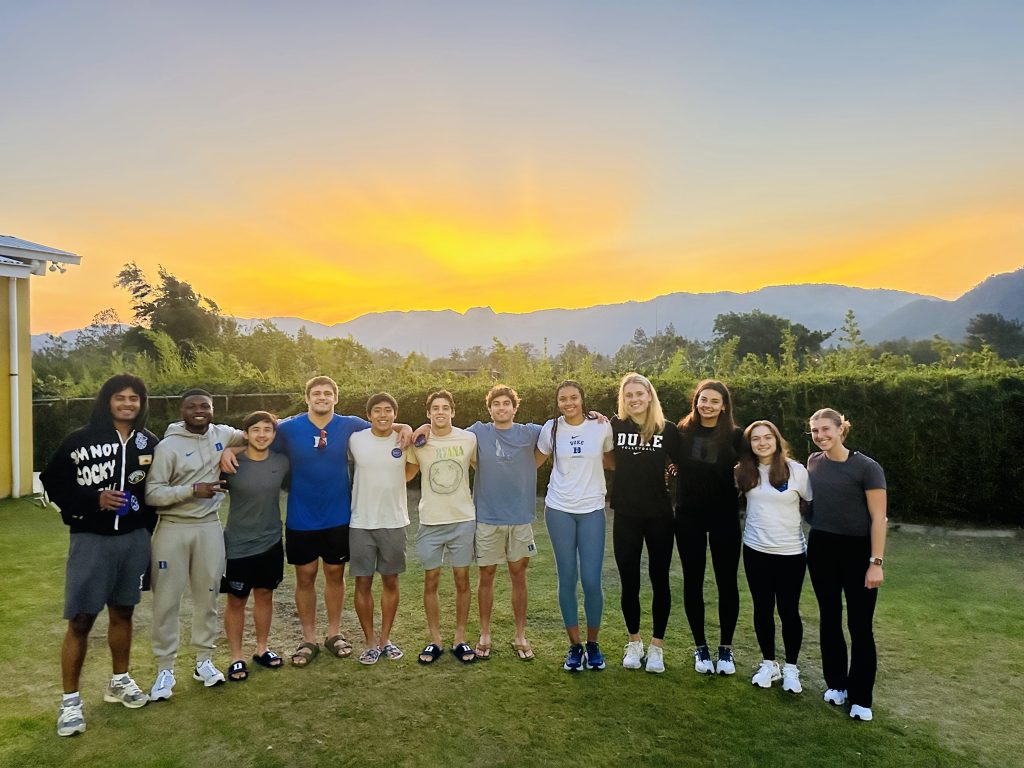
Program Overview | Service Opportunities | Program Requirements |
| Program Details
Program Overview
During the week in Panama, participants will collaborate with local schools and government institutions to facilitate a sports camp and learn about Panamanian culture.
Panama is a small country of some 4.4 million people. It has benefitted from steady economic growth, but poverty and income inequality have remained, disproportionately affecting rural indigenous territories and Afro-Panamanian populations.
Though the country receives billions of dollars for the canal each year, this money does not always reach more rural areas. Schools in these areas often lack funds to offer activities outside of the regular school schedule and agenda. This is where AMIGOS comes in with fun and educational activities for youth. Though this is a short-term program, it will provide an opportunity for local kids to be exposed to something new and perhaps spark interest and discipline in sports. AMIGOS is excited to offer this opportunity in communities where we have built relationships and worked for years.
Service Opportunities
ACE participants will be working with two communities in the local schools located near the city of Valle de Anton. The ACE participants will be split into two groups, with each group working with one school throughout the week. They will collaborate with these two local schools for the entire week to provide comprehensive sports camps for the kids. On the last day in the area, ACE participants will host a sports competition day and bring the two communities together.
Local public schools: ACE participants will work with schools in communities where AMIGOS has been present for several years. In addition to educating children and youth, these schools play a central role in promoting a sense of belonging and unity among the people in the community. Public schools are regulated by the Panamanian Ministry of Education; however, minimal funds are allocated to rural schools. The local schools depend on the contributions of parents, both monetary and in-kind, and alliances with other organizations to carry out initiatives that promote a better educational environment for the student body and teachers. By independently exploring other channels of support for the school, they have improved the opportunities and learning environment at the schools, and identified and responded to other issues in the community.
The ACE participants will be working in these schools to provide a unique extra-curricular opportunity for the school children through the facilitation of a sports camp. The participants will use their own experience, knowledge, and passions to design and facilitate an after-school sports camp during the days they spend in the community. Through the after-school sports camp, the local youth may be exposed to new sports, training exercises, and information about nutrition. The ACE participants will provide a safe space for kids to learn and have fun.
These activities will be held outside and participants need to be ready to be active, get their hands-dirty, and to spend time with kids and youth.
Program Requirements
Language Suggestions
Spanish is the national language of Panama. Given that the local community speaks mostly Spanish, any experience in Spanish is highly beneficial although not required. Our staff is bilingual and trained in translation; however, we encourage participants to brush up on their Spanish skills before the program begins to facilitate independent communication with local partners and youth.
Other skills
No prior experience in community development, working with youth, coaching, or teaching is necessary; however, ACE participants with these skills or at least an interest in them will be highly beneficial to this program. An interest in the region and basic understanding of Panama-U.S ties and history will also help contextualize the experience. Additionally, an interest in outdoor, hands-on work is important for this program since the majority of projects are outdoor-based and require varying levels of physical labor or active involvement in hot weather conditions.
All participants will be required to complete a Criminal Background Check prior to their arrival on the program
Personal competencies
Ideal participants will be energetic, enthusiastic, and excited to work with kids and youth. In addition, participants with the following competencies will be most successful on the program:
- Commitment to honest and ethical behaviors: actively seeks to understand and adhere to the values, policies, procedures, and protocols of ACE and their host organization/community; lives up to commitments and promises they make to others
- Ability to manage stress in a novel environment: seeks to recognize and regulate stress reactions in themselves and calmly practice coping strategies that work for them; seeks help from others when they feel overwhelmed
- Ability to work productively on a supervised team: responds to feedback and critique from co-workers and supervisors with maturity and openness to improvement; listens actively and communicates courteously; responds with patience and perseverance to new or unanticipated situations and obstacles; accepts responsibility for their actions; balances their personal expectations of the ACE volunteer experience with the realities of working on short-term projects in cultural and workplace settings that are new to them
- Self-reliance and self-confidence: understands and meets their own physical and emotional needs in new environments with an age-appropriate mixture of optimism and realism
- Empathy and cultural sensitivity: effectively and respectfully communicates and interacts with people of different ages, races, religions, and cultures; demonstrates curiosity about the lives of others without judgment
- Self-awareness: possesses an age-appropriate understanding of the personal strengths and weaknesses they bring to an ACE project/program; able to articulate their beliefs and values, and to state authentically their personal motivation to serve as a volunteer; demonstrates an awareness of how others may view them in a variety of cultural settings
- Problem-solving and goal orientations: possesses strong analytical skills and an interest in producing deliverable end-projects for a community partner organization, e.g., construction of buildings or physical structures, etc.
Program Details
This program will be located in two primary locations with the majority of the time spent in the Cocle province. (Please note that locations and durations are subject to change. The itinerary will be finalized once the ACE in Panama team is confirmed in mid-March.):
1. Coclé —The group will spend six nights in the city of Valle de Anton. The town is located about 2.5 hours from Panama City and is in the crater of an extinct volcano. It is surrounded by beautiful mountains and a cloud forest. has a population of around 7,600 inhabitants. It is located about 1,900 feet above sea level and has temperatures ranging from a low of 75° Fahrenheit to 90° Fahrenheit and 90% humidity
2. Panama City—The group will spend two nights in Panama City before departure. Participants will stay in the historic city center (Casco Viejo) and have an opportunity to see the Panama Canal and take a tour of the historic city to learn about the history and architecture of the colonial-style buildings. Panama City is hot and humid at all times of the year.
ACE participants will be staying in group lodging facilities with access to modern utilities, including electricity and western-style toilets. Hot water may be limited, but the weather is warm enough that it is not needed. There are communal spaces for eating, socializing, prepping materials, and relaxing. There are also open green spaces to play soccer or hang out outside. Participants will be in same-sex dorm-style rooms with shared, private bathrooms. Laundry service will be offered one time on the trip. It is very hot in the parts of Panama where the group will be located. Fans or air-conditioning are available at the lodging sites. In Valle de Anton, students will be located at a retreat center with open green areas and the space will be exclusively for ACE. In Panama City, students will stay at a hotel in the Casco Viejo. There will be other guests at the hotel, but students will share dorms only with other ACE participants.
In this program, students will be provided 3 prepared meals per day and snacks. ACE participants will be able to help themselves to fruit, basic snacks, and potable drinking water throughout the day. There may be times when participants will go out for the odd meal, which will be included in the program. Participants may wish to bring extra spending money for supplementary food and snacks that can be purchased at the nearby grocery store. Generally, most dietary restrictions and preferences can be accommodated. Detailed packing recommendations will be given closer to departure; however, participants are encouraged to bring some type of protein supplements and electrolyte powder given the high temperatures and humidity. All food that participants bring will be stored by the project staff team. Storing food correctly in the tropics is critical to avoid infestations of bugs or other critters in the bedrooms. AMIGOS staff will ensure there is a variety of snacks available and hearty meals. When possible, the primary meals will be served in buffet style, to ensure participants can select what they like and return for additional portions, as needed.
If participants’ dietary needs are not being met for any reason, they need to inform their project staff. Also, if you have any specific concerns before signing up for the program, please contact the ACE office, aceathletes@duke.edu, to discuss whether your dietary needs can be reasonably accommodated at this program site.
The three main courses may look like this:
Breakfast
- Typical Panamanian breakfast: Hojaldre (fried dough) with stew sausages or tortilla (fried corn patty) with eggs.
- International cuisine: pancakes with eggs or French toast with eggs.
- All breakfasts include fruit and beverages.
Lunch
- Sancocho (traditional chicken soup) or rice and beans with steak or chicken and plantains.
- Note: During the days when ACE participants will be running the sports camp, lunch will be eaten at the schools with the students and prepared by local community members.
Dinner
- Smashed potatoes with grilled chicken and salad.
- Rice with pork stew and salad.
At all lodging sites, food restrictions will be considered.
Wi-fi is available at the lodging sites and participants can use internet-based communication, i.e. WhatsApp, Facetime, etc. to stay in touch. Wi-fi may be slower than students are accustomed to.
All AMIGOS onsite project staff carry cell/mobile phones at all times and are reachable via the 24-hour Emergency Contact number. AMIGOS staff is also always on-site in the event students need emergency support.
While ACE participants are permitted to bring their own cell phone, camera, or laptop to the program, AMIGOS is not liable for any damage, lost, or stolen items during the stay. Due to AMIGOS’s Media Policy, technological equipment will not be permitted on the project sites (including cell phones, cameras, etc.).
ACE participants will travel in fully insured and vetted transport with a licensed and experienced driver to and from their community partner sites, the gym, and enrichment activities. Where possible, participants will walk. When in Valle de Anton, participants will travel daily to the communities that are within 45-60 minutes from the city. Students prone to motion sickness may find it helpful to bring medication, as participants will be traveling on winding, mountainous roads.
ACE participants will be provided with time for training in their project activity schedule. This will typically take place in the mornings or evenings depending on the daily activities. A local gym is located near the lodging sites. They have weights and cardio machines, though may not be as equipped as the gyms in the U.S. ACE participants will be provided with a short-term gym membership as part of the program where they can access the gym as many times as they like during their stay (as the program schedule allows). There will also be designated areas for running or outside free body weight activities and fields to play soccer and volleyball. A video of the gym is included in the gallery below.
Pool training is not feasible for ACE participants who need to commit to regular swimming training since there are no available pools in the area.
Once the ACE participants are confirmed and the students’ training needs are assessed, a training schedule will be developed.
ACE participants will receive online and in-person training for this program. Before departure, participants will attend two sessions of one hour each on the topics of health and safety and program components and expectations. Upon arriving in the country, participants will participate in a couple orientation activities to orient them to the area, the project, the expectations, and the plans for the week. They will also receive informative talks from the local partners. There will also be one Spanish class to support with useful phrases and functional conversation tips.
The daily schedule will fluctuate based on activities. Athletic training time is subject to change based on the schedule and availability of the local gym.
Participants can expect a daily schedule like the following:
- 6:30-8:30am—Morning athletic training
- 8:30-9:00am—Breakfast
- 9:00am-12:00pm—Cultural enrichment activity, planning for afternoon activities with youth, and/or outdoor activity.
- 12:00-12:45pm—Travel to community.
- 12:45-1:30pm—Lunch—In community with the youth participating in the sports camp or together as a group in another location.
- 1:30-4:30pm—Facilitating a sports camp–activities with local youth.
- 4:30pm-5:00pm—Travel back to city and go to hotel.
- 5:00-6:00pm—Free time
- 6:00-7:00pm—Dinner
- 7:00-8:00pm—Asamblea
- 8:00-10:00pm—Free time or organized group activities
Participants will also receive a one-on-one mentoring session with AMIGOS staff.
Every day, there will be 1-2 student leaders of the day. These students meet with AMIGOS staff the night before their day and go over the schedule for the next day and the expectations as the student leaders. The daily leaders are responsible for waking up the group, ensuring everyone is prepared and on-time for activities, support in keeping the group engaged, and leading the nightly asamblea.
Each night after dinner the daily leaders will facilitate the asamblea with support from AMIGOS staff. This is a time to team-build, reflect on the day, and review the agenda for the following day. Daily leaders are expected to think of reflection questions for the group based on their daily activities and experiences. This will also be a space for group-processing led by AMIGOS staff, to process emotions and resolve conflicts.
Learning about the local culture is an integral part of the program. Cultural enrichment activities may include:
- Spanish class
- Panamanian cooking class
- Local dance class
- Visit to the Panama Canal
- Tour in the historic center of Panama City
- Butterfly Haven
- Cultural presentation
Participants will also have the opportunity to immerse in the culture through daily visits to rural communities and the facilitation of a sports camp with youth.
BOOKS
• Panama’s Poor: Victims, Agents, and Historymakers by Gloria Rudolf
• Stories, Myths, Chants, and Songs of the Kuna Indians by Joel Sherzer and Olokwagdi de Akwanusadup
• America’s Prisoner: The Memoirs of Manuel Noriega by Noriega
• Silver and Gold: Untold Stories of Immigrant Life in the Panama Canal Zone by Emmanuel Evers Airall
• In Defiance: The Battle Against General Noriega Fought from Panama’s Embassy by Juan B. Sosa
• How Wall Street Created a Nation: J.P. Morgan, Teddy Roosevelt, and the Panama Canal by Ovidio Diaz Espino
MUSIC
• http://en.wikipedia.org/wiki/Music_of_Panama
• http://www.panama1.com/Music_of_Panama.php
• Rúben Blades (Salsa): https://www.youtube.com/watch?v=GL8x1AaUBVc
• Llevarte a Marte (Reggae-Rock fusion): https://www.youtube.com/watch?v=eK8yQxDZPV0
• Lolas (Punk/Rock): https://www.youtube.com/watch?v=dmZpZ0Z7r5c
• La Factoria (Reggaeton): https://www.youtube.com/watch?v=6nl5U0O5nOU
• Carlos Méndez (Alternative): https://www.youtube.com/watch?v=VpMbWpSXyQQ
MOVIES
• Caja 25 (Drama): http://www.iffpanama.org/es/peliculas/caja-25
• Ruta de La Luna (Drama): https://www.youtube.com/watch?v=jT7LtlI2cNA
• Chance (Comedy)
WEBSITES
• Peace Corps website with useful information on Panamá: http://www.peacecorps.gov/index.cfm?shell=learn.wherepc.LatinAmerica.panama
• Panamá Canal website: http://www.pancanal.com
• Panamá News in English: http://www.thepanamanews.com
• Panamá newspaper, in Spanish, widely considered the most neutral: http://www.prensa.com
• Latin America Network Information Center (LANIC) at the University of Texas at Austin – Country Page for Panama: http://lanic.utexas.edu/la/ca/panama. This has loads of resources and material to read up on!
Media Gallery
-
View Image 1:
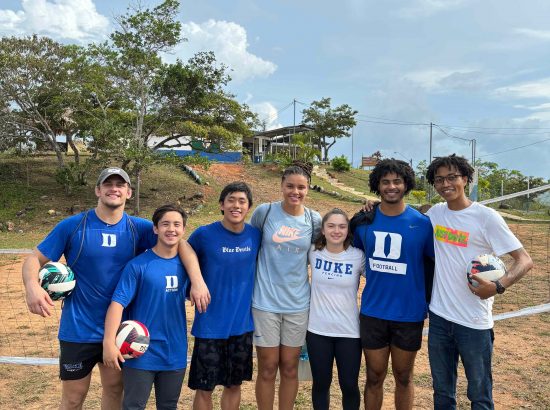 Participants will support sports camps at two rural schools in Panama
Participants will support sports camps at two rural schools in Panama -
View Image 2:
 Participants will support sports camps at two rural schools in Panama
Participants will support sports camps at two rural schools in Panama -
View Image 3:
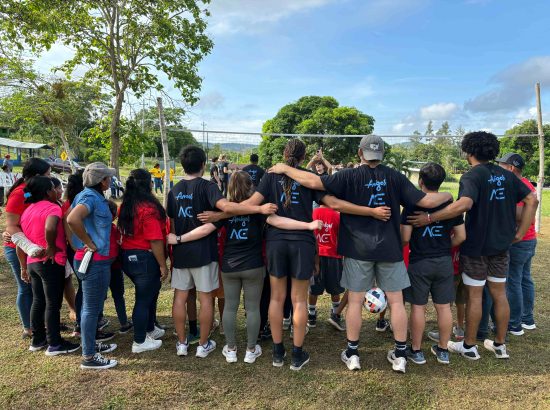 At the end of the program, participants will bring the communities from two schools together for a competition day
At the end of the program, participants will bring the communities from two schools together for a competition day -
View Image 4:
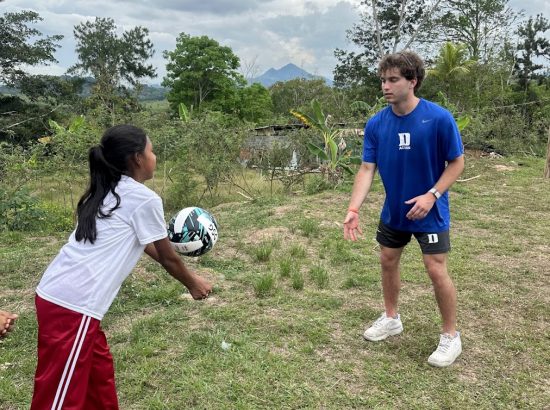 Participants will teach sports lessons and drills to rural Panamanian youth
Participants will teach sports lessons and drills to rural Panamanian youth -
View Image 5:
 An example itinerary for a day in ACE in Panama
An example itinerary for a day in ACE in Panama -
View Image 6:
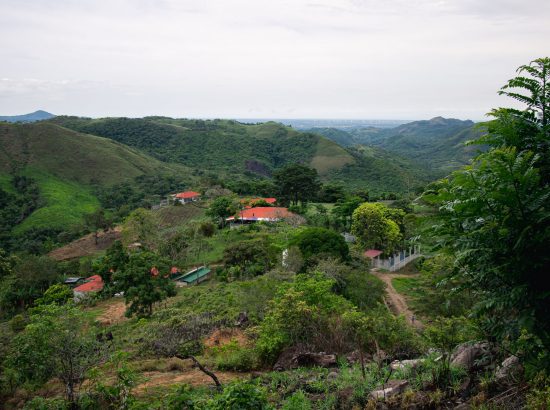 Scenery from the region in Panama where the program will take place.
Scenery from the region in Panama where the program will take place. -
View Image 7:
 Path winding through a rural community in the area where the ACE program will take place.
Path winding through a rural community in the area where the ACE program will take place. -
View Image 8:
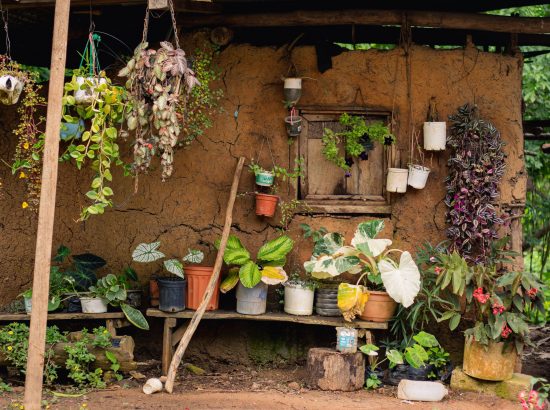 Home in a rural community in the area where the ACE program takes place.
Home in a rural community in the area where the ACE program takes place. -
View Image 9:
 Scenery from the region in Panama where the program will take place.
Scenery from the region in Panama where the program will take place. -
View Image 10:
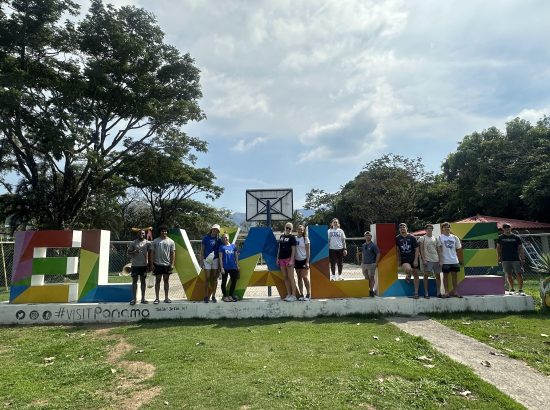 Valle de Anton, the community where ACE participants will stay during the majority of their time in Panama.
Valle de Anton, the community where ACE participants will stay during the majority of their time in Panama. -
View Image 11:
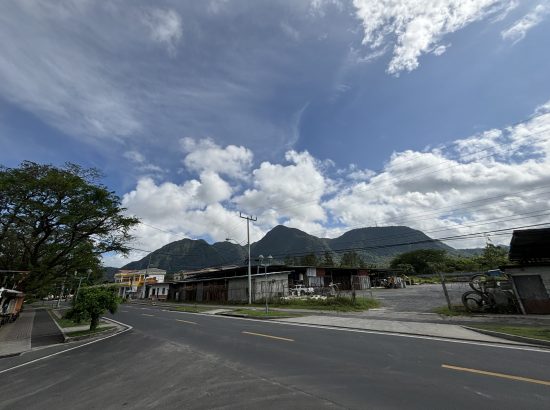 Valle de Anton, the community where ACE participants will stay during the majority of their time in Panama.
Valle de Anton, the community where ACE participants will stay during the majority of their time in Panama. -
View Image 12:
 Participants will support sports camps at two rural schools in Panama
Participants will support sports camps at two rural schools in Panama -
View Image 13:
 El Potrero and Tambo schools, including the field where ACE participants will lead the sports camp.
El Potrero and Tambo schools, including the field where ACE participants will lead the sports camp. -
View Image 14:
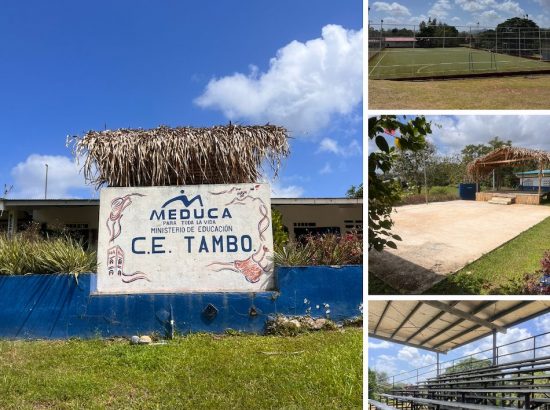 El Potrero and Tambo schools, including the field where ACE participants will lead the after-school sports camp.
El Potrero and Tambo schools, including the field where ACE participants will lead the after-school sports camp. -
View Image 15:
 El Potrero and Tambo school classrooms where students will be teaching the after-school sports workshop.
El Potrero and Tambo school classrooms where students will be teaching the after-school sports workshop. -
View Image 16:
 El Potrero and Tambo schools, including an example of a dining hall where ACE participants will have lunch with the students.
El Potrero and Tambo schools, including an example of a dining hall where ACE participants will have lunch with the students. -
View Image 17:
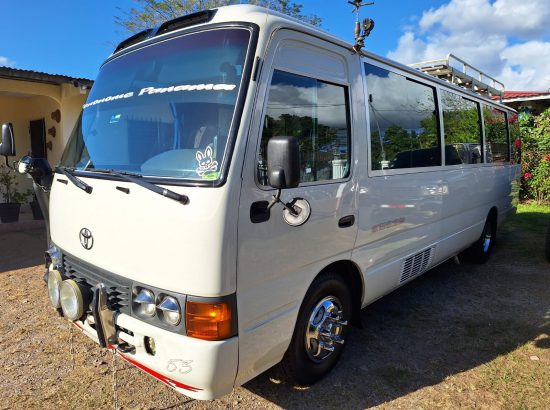 Example of the type of bus ACE participants will use while in Panama.
Example of the type of bus ACE participants will use while in Panama. -
View Image 18:
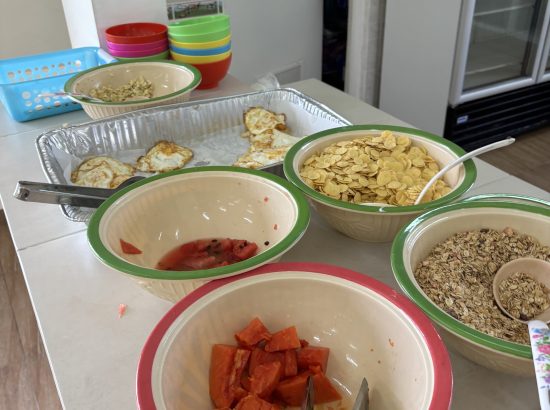 An example of breakfast you can expect at the Damas Guadalupanas lodging in Valle de Anton.
An example of breakfast you can expect at the Damas Guadalupanas lodging in Valle de Anton. -
View Image 19:
 An example of a lunch you can expect at the school that is prepared by the community members.
An example of a lunch you can expect at the school that is prepared by the community members. -
View Image 20:
 Some breakfasts might include sausage stew with tortillas and eggs or tortillas with omelet.
Some breakfasts might include sausage stew with tortillas and eggs or tortillas with omelet. -
View Image 21:
 Some dinners or lunches might include guandul beans with chicken stew or rice with fried chicken and salad.
Some dinners or lunches might include guandul beans with chicken stew or rice with fried chicken and salad. -
View Image 22:
 Some dinners or lunches might include guandul beans with chicken stew or rice with fried chicken and salad.
Some dinners or lunches might include guandul beans with chicken stew or rice with fried chicken and salad. -
View Image 23:
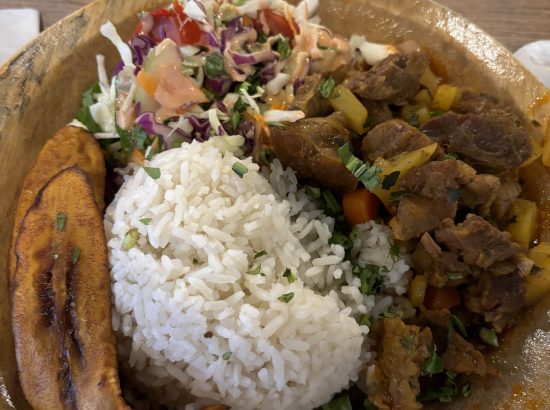 An example of a meal you can expect in Panama City.
An example of a meal you can expect in Panama City. -
View Image 24:
 Outdoor area of the lodging site in Valle de Anton.
Outdoor area of the lodging site in Valle de Anton. -
View Image 25:
 Meeting and eating area of the lodging site in Valle de Anton.
Meeting and eating area of the lodging site in Valle de Anton. -
View Image 26:
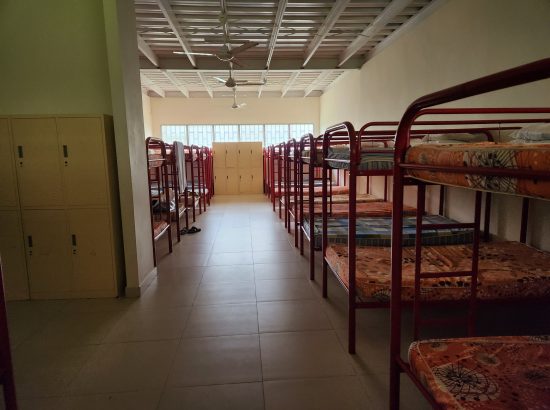 Where participants will sleep at the lodging site during the program in Valle de Anton.
Where participants will sleep at the lodging site during the program in Valle de Anton. -
View Image 27:
 Bathrooms available for participants at the lodging site in Valle de Anton.
Bathrooms available for participants at the lodging site in Valle de Anton. -
View Image 28:
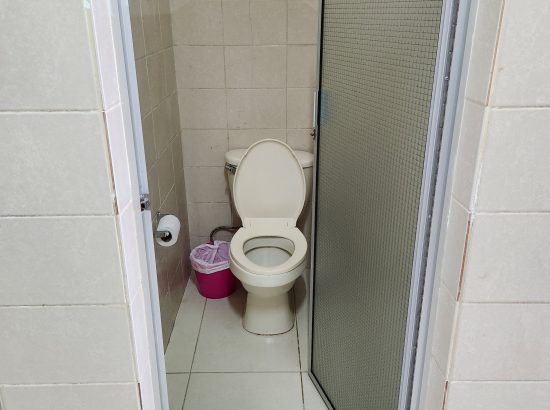 Bathrooms available for participants at the lodging site in Valle de Anton.
Bathrooms available for participants at the lodging site in Valle de Anton. -
View Image 29:
 Group area at the lodging site in Valle de Anton.
Group area at the lodging site in Valle de Anton. -
View Image 30:
 Lodging site in Valle de Anton.
Lodging site in Valle de Anton. -
View Image 31:
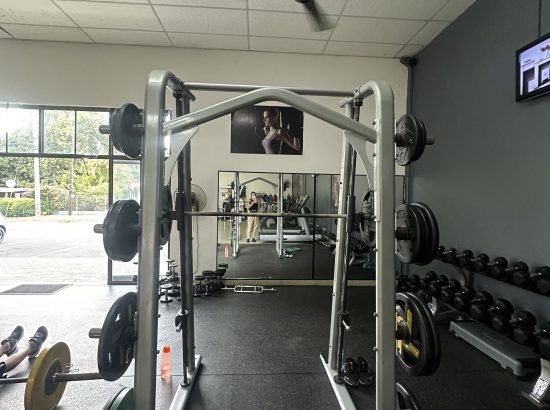 Weight rack at the gym available to students in Valle de Anton.
Weight rack at the gym available to students in Valle de Anton. -
View Image 32:
 Dumbbells available at the gym in Valle de Anton.Read More
Dumbbells available at the gym in Valle de Anton.Read More -
View Image 33:
 Dumbbells available at the gym in Valle de Anton.
Dumbbells available at the gym in Valle de Anton. -
View Image 34:
 Participants will have access to a gym with a variety of training equipment while in Valle de Anton.
Participants will have access to a gym with a variety of training equipment while in Valle de Anton. -
View Image 35:
 Participants will have access to a gym with a variety of training equipment while in Valle de Anton.
Participants will have access to a gym with a variety of training equipment while in Valle de Anton. -
View Image 36:
 Participants will have access to a gym with a variety of training equipment while in Valle de Anton.
Participants will have access to a gym with a variety of training equipment while in Valle de Anton. -
View Image 37:
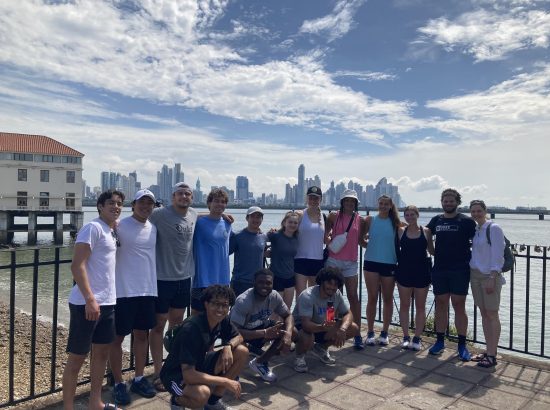 At the end of the program, the group will spend two nights in Panama City learning about the history of Panama and touring the Panama Canal.
At the end of the program, the group will spend two nights in Panama City learning about the history of Panama and touring the Panama Canal. -
View Image 38:
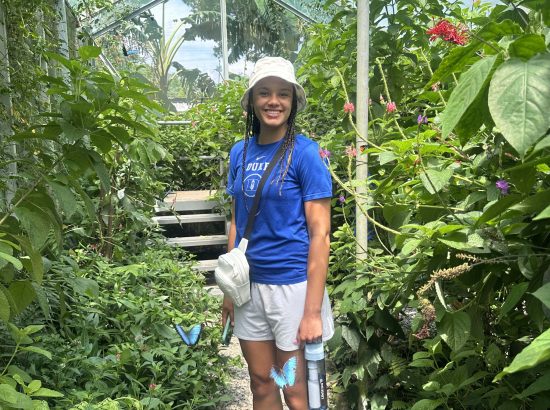 Participants will visit a butterfly haven located in Valle de Anton
Participants will visit a butterfly haven located in Valle de Anton -
View Image 39:
 Participants will tour Casco Viejo, the historic district of Panama City, during their time in Panama City at the end of the program.
Participants will tour Casco Viejo, the historic district of Panama City, during their time in Panama City at the end of the program. -
View Image 40:
 Church in historic center of Panama City of the Casco Viejo that students will learn about on their walking tour.
Church in historic center of Panama City of the Casco Viejo that students will learn about on their walking tour. -
View Image 41:
 Panama City scenery, including one of the program's enrichment activities - a walking tour of the Casco Viejo, the historic district of Panama City.
Panama City scenery, including one of the program's enrichment activities - a walking tour of the Casco Viejo, the historic district of Panama City. -
View Image 42:
 Students will tour the Panama Canal and get to see ships going through the locks during their time in Panama City.
Students will tour the Panama Canal and get to see ships going through the locks during their time in Panama City. -
View Image 43:
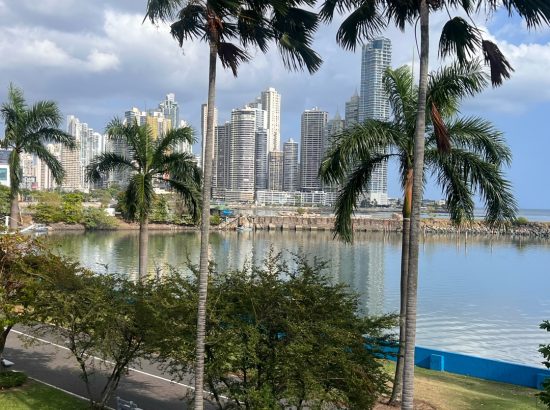 Cinta Costera in Panama City where participants will stay during the final two days of the program.
Cinta Costera in Panama City where participants will stay during the final two days of the program.
Travel Notices
For additional information regarding the specific program location, it’s recommended that you review the following US State Department and International SOS websites:

